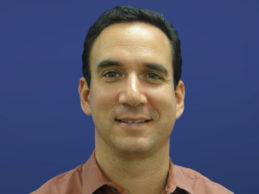The Internet of Medical Things (IoMT) is changing the face of healthcare and has the potential to significantly improve patient access as well as system efficiencies. The adoption of telemedicine, for example, spurred on by the Covid-19 pandemic, has spread rapidly. Forrester revised its forecasts to predict that virtual care visits in the United States will soar to more than one billion this year—including 900 million visits related to Covid-19 specifically. Likewise, in the United Kingdom,
Read More
Transitioning from Traditional to E-Fax: How Healthcare Communications are Transforming Post-COVID
The majority of industries have decreased or eliminated their use of the traditional fax machine over the past decade, including aviation, retail, and even finance. While the healthcare industry is at the forefront of disease research and treatment, however, it is still heavily reliant on this aging technology.
Traditional fax has become ubiquitous in healthcare. It worked for health systems for many years, but the overwhelming volume of patient data and paper documents the healthcare
Read More
Solving the 50-Year-Old EHR’s Midlife Crisis: How Platform EHRs are Finally Delivering Clinical Intelligence
Over its first 50 years in existence, how did the EHR lose its way?
Given that EHR adoption doubled between 2007 and 2012 and EHR expenditures in the United States grew an annual average of 5.4% from 2015 to 2019, totaling $14.5 billion in 2019, this may sound like a strange question to ask. But it’s earnest, and asking it acknowledges that electronic health records, first conceived and implemented during the presidential administrations of Lyndon Johnson and Richard Nixon, haven’t lived up
Read More
Why Hospitals Should Act Now to Create Clinical AI Departments
A century ago, X-rays transformed medicine forever. For the first time, doctors could see inside the human body, without invasive surgeries. The technology was so revolutionary that in the last 100 years, radiology departments have become a staple of modern hospitals, routinely used across medical disciplines.
Today, new technology is once again radically reshaping medicine: artificial intelligence (AI). Like the X-ray before it, AI gives clinicians the ability to see the unseen and has
Read More
Traditional RESTful APIs Will Not Solve Healthcare’s Biggest Interoperability Problems
Interoperability is a big discussion in health care, with
new regulations requiring interoperability for patient data. Most approaches
follow the typical RESTful API approach that has become the standard method for
data exchange. Yet Health Level Seven (HL7), with its new Fast Healthcare Interoperability
Resources (FHIR) standard for the electronic transfer of health data, is
leading to a rash of implementations that, to date, are not solving core interoperability
issues.
Data is still
Read More
Transforming Care Delivery Through AI-Powered Predictive Surveillance
Since the onset of the COVID-19 pandemic, hospitals and health systems have pushed forward with innovative technology solutions with great expediency and proficiency. Healthcare organizations were quick to launch telehealth solutions and advance digital health to maintain critical patient relationships and ensure continuity of care. Behind the scenes, hospitals and health systems have been equally adept at advancing technology solutions to support and enhance clinical care delivery. This
Read More
4 Predictions for Diabetes Management and Technology in 2021
The COVID-19 pandemic continues to put an unprecedented amount of strain on the entire healthcare sector, and the industry has responded by accelerating the ways innovation is developed and adopted. Health leaders have faced a generational challenge and the result has been the rapid deployment of technology to address dire patient needs. Health systems, physicians, and frontline staff pulled together in remarkable fashion to implement these emerging technologies that enhance the ways patients
Read More
Why A Patient-First Strategy for Specialty Rx Pharmacists Is Critical to Optimize Outcomes
One of the biggest challenges for biopharmaceutical companies of rare and orphan disease patient populations is optimizing disease management in a way that enhances the patient journey and improves outcomes. As these companies seek innovative solution partners, a patient-first approach that offers specialty Rx pharmacist expertise is critical for securing insurance coverage, coordinating care, ensuring compliance, and, ultimately, minimizing the daily impact of rare and orphan
Read More
Is Your Connected Community of Care Truly Making a Difference?
Connected Communities of Care Definition: An innovative method for effective population health management using social determinants of health. A way to streamline effective coordination between medical, government, and community-based organizations.
We ask this type of question every day. For example, we may ask― “Is this product that I purchased making a difference?” or “Is this advanced training that I completed making a difference?” Implicit in this common question is the
Read More
4 Quick Tips for Getting COVID-19 Claims Paid Promptly
As the COVID-19 pandemic has gripped the world, many providers have adopted an all-hands-on-deck approach and mentality for treating COVID-19 patients, stretching their resources to the breaking point.
We have heard about the frontline heroes who have sacrificed their own health and safety to treat patients and, in less-fortunate scenarios, comfort patients in their last moments as they were quarantined from loved ones.
What has been less recognized is the work and sacrifice
Read More











